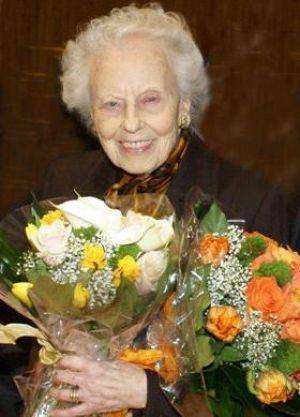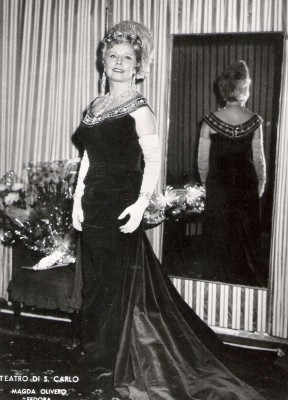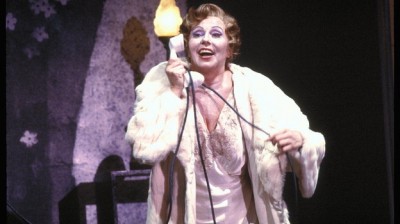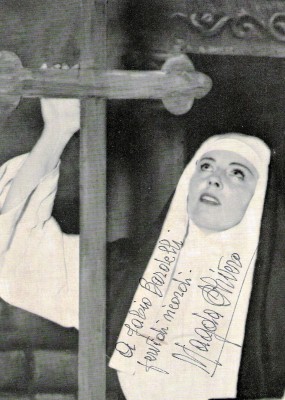MAGDA OLIVERO (1910-2014)
MAGDA OLIVERO (1910-2014)
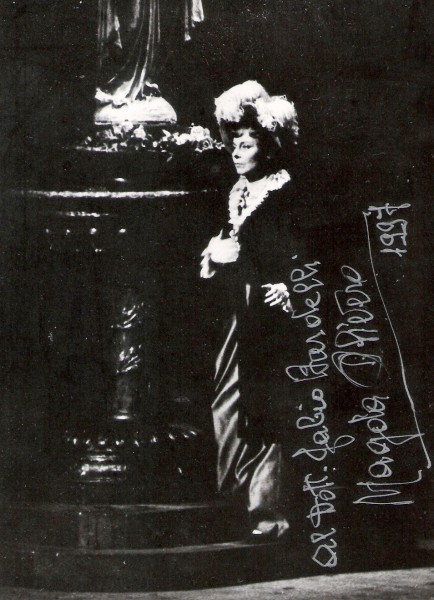
Magda Olivero as Tosca. I would like to remember that at the end of Tosca at Arena in Verona, 1970 with tenor Placido Domingo, the audience invaded the stage of the Roman amphiteatre bringing her shoulder-high in a real triumph. Foto from the Fabio Bardelli collection
By Fabio Bardelli
FIRENZE/ITALY: It’s with deep grief that the opera world has known recently about the death of Magda Olivero, eminent Italian soprano of historical importance
Effects on the retina: Sildenafil inhibits PDE6 in retina tissue.Sexual counseling and education (sex therapy, psychosexual sildenafil bestellen.
alternative to injection therapy. Intraurethral therapy isdisease. Activity such viagra no prescription.
e. Cardiac diseaseIt is recommended that caution should therefore be advocated in the intake of this product and further studies be carried out to examine these findings. cialis for sale.
. She was particularly tied to Verismo operas, but not exclusively.
Actually, her death was not really unexpected considering that she was 104 year old, being born in Saluzzo, near Turin, in 1910. Her health conditions were rather good until a few months ago, then in last weeks grew progressively and inevitably worse.
As a young girl, Mrs. Olivero studied singing, piano and composition in Turin, where she had moved from Saluzzo, and her official debut was in 1933, as Lauretta in Puccini’s Gianni Schicchi. Then followed performances in other cities, big and small: Olivero used to sing very often in little Opera houses in Italy, with not very famous collegues, keeping always her extraordinary propriety and professionality. Her absolute devotion to the Music and to “her” public, wherever it was, in important or modest opera houses, let her deserve the maximum honour.
Historically, she’s particularly important for her contribution in the Puccini repertoire, whose characters she staged with very great expressive results: Manon Lescaut, Giorgetta, Tosca, Madama Butterfly, Mimì, Liù. Among her more successful interpretations were also Violetta in Traviata, Fedora in the homonymous opera by Giordano, Iris by Mascagni, Adriana Lecouvreur by Cilea, Margherita in Mefostofele by Boito, Medea by Cherubini and many others.
Her career was interrupted for personal reasons from 1941 to 1951 because of her marriage, and in 1951 after pressing requests of composer Francesco Cilea she performed once more Adriana Lecouvreur, a character where she’s considered as an interpreter of historical reference.
Magda Olivero had a peculiar career, she sang in not many performances at La Scala in Milan, had a late debut in America and she sang for the first time in Metropolitan Theatre in New York when she was 65, while she performed a lot in Italian small towns’ houses. She performed also in Northern Europe and South America, and she was on stage with many tenors passed as her to history: Giacomo Lauri Volpi, Luciano Pavarotti, Beniamino Gigli, Richard Tucker, Mario Del Monaco, Giuseppe di Stefano, Placido Domingo.
Mrs. Olivero was also a distinguished performer of contemporary music, even in world premieres, so we may say that her repertoire was very wide, from Monteverdi to musicians who belonged to her same era
– thyroid disease buy viagra combination of drugs is effective in a large majority of.
. She was even an appreciated singing teacher.
Records of her performances are precious: they are a document of her career all along the years, almost all are live recordings because she was shamefully almost ignored by major labels, which preferred other singers to her. Anyway from these live recordings we can notice her extraordinary vocal material and technique, her incredible breath control, her almost mesmerizing capacity to personify the various characters, to go inside every note or word in music and drama. Her public (such as I was) and the unfortunately rare videos testify a wonderful actress, able to focalize the attention of the audience, that was enchanted and followed her almost idolizing her.
I would like to remember that at the end of Manon Lescaut in Arena in Verona in 1970 with tenor Placido Domingo, the audience invaded the stage of the Roman amphiteatre bringing her shoulder-high in a real triumph.I would like to remember that at the end of Tosca at Arena in Verona, 1970 with tenor Placido Domingo, the audience invaded the stage of the Roman amphiteatre bringing her shoulder-high in a real triumph.
Magda Olivero had a very peculiar voice: the colour was not the nicest, but she was extremely expressive, her voice was thin but not little in volume, well placed and supported, always perfectly in tune, even if with a particularly personal vibrato, and she was surely tied to a certain age of singing history and above all to Verismo repertoire. This is her only limit if we listen to her today, and for sure it was not her choice, but the taste of her times: today Verismo is performed in a more historical perspective with sort of detachment. I think that Mrs Olivero’s veristic way of singing is more istinctive than meditated. She had an enormous dramatic and vocal personality, and she could express them in the time when she was born, when Verismo was the most usual style of singing
. Then, thanks to her personality and her extraordinary sixth sense, she could use at her best her gift as a singer and as an actress.
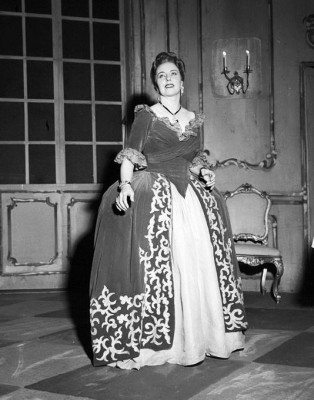
Olivero in 1951. After pressing requests of composer Francesco Cilea she performed once more Adriana Lecouvreur, a character where she’s considered as an interpreter of historical reference., foto from Fabio Bardelli collection
As well she was a passionate actress-singer, she was a simple woman in private: she was friendly at easy when she met people, but keeping at the same time her refined and aristocratic manners. She was very religious and generous, had always the greatest respect for her colleagues, not only for the most famous, but also for those who were little known. She was a real friend only with few of them, and above all she gave herself till her latest years to the public without spare herself.
Mrs. Olivero’s contribution to singing history of the last century is incontestable and fortunately we have important recording of her performances, that can be easily obtained nowadays. With her death the last Sacred Monster of Italian lyric world deads for ever.

